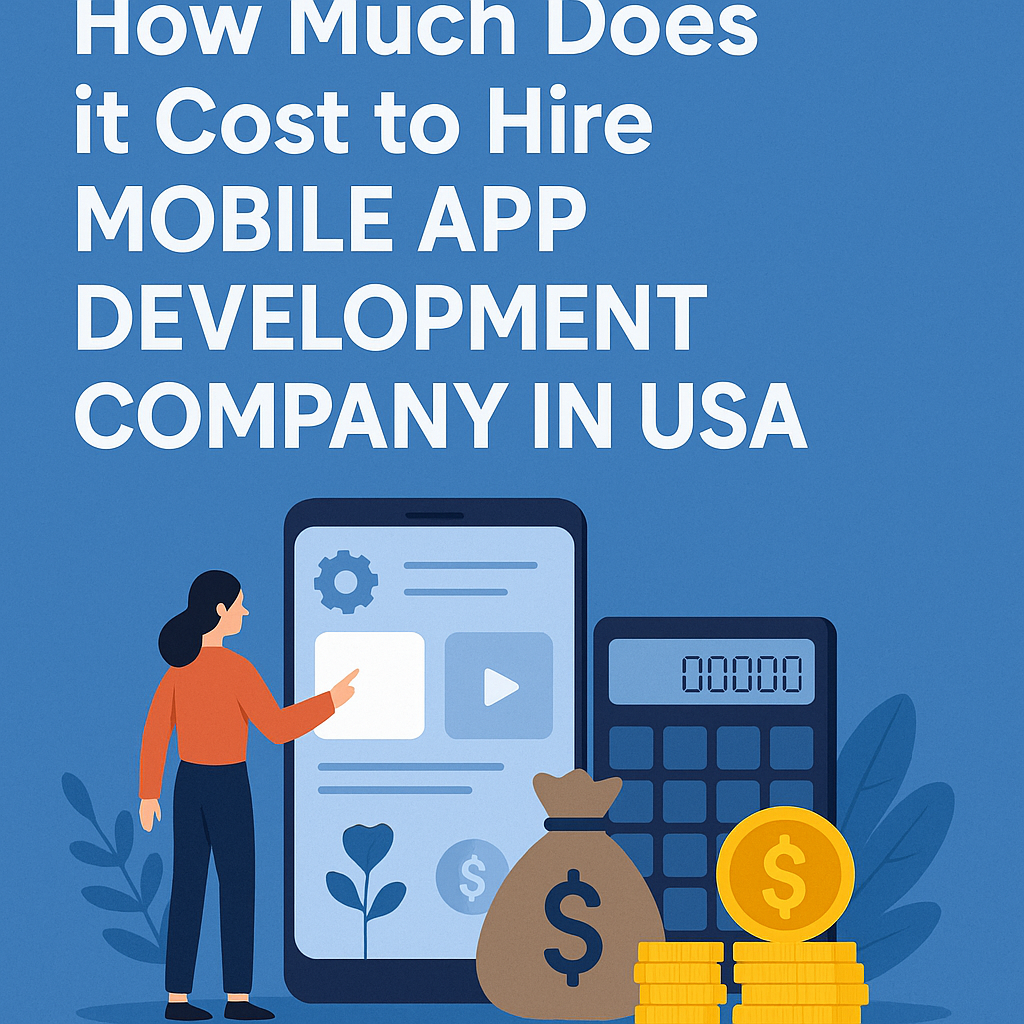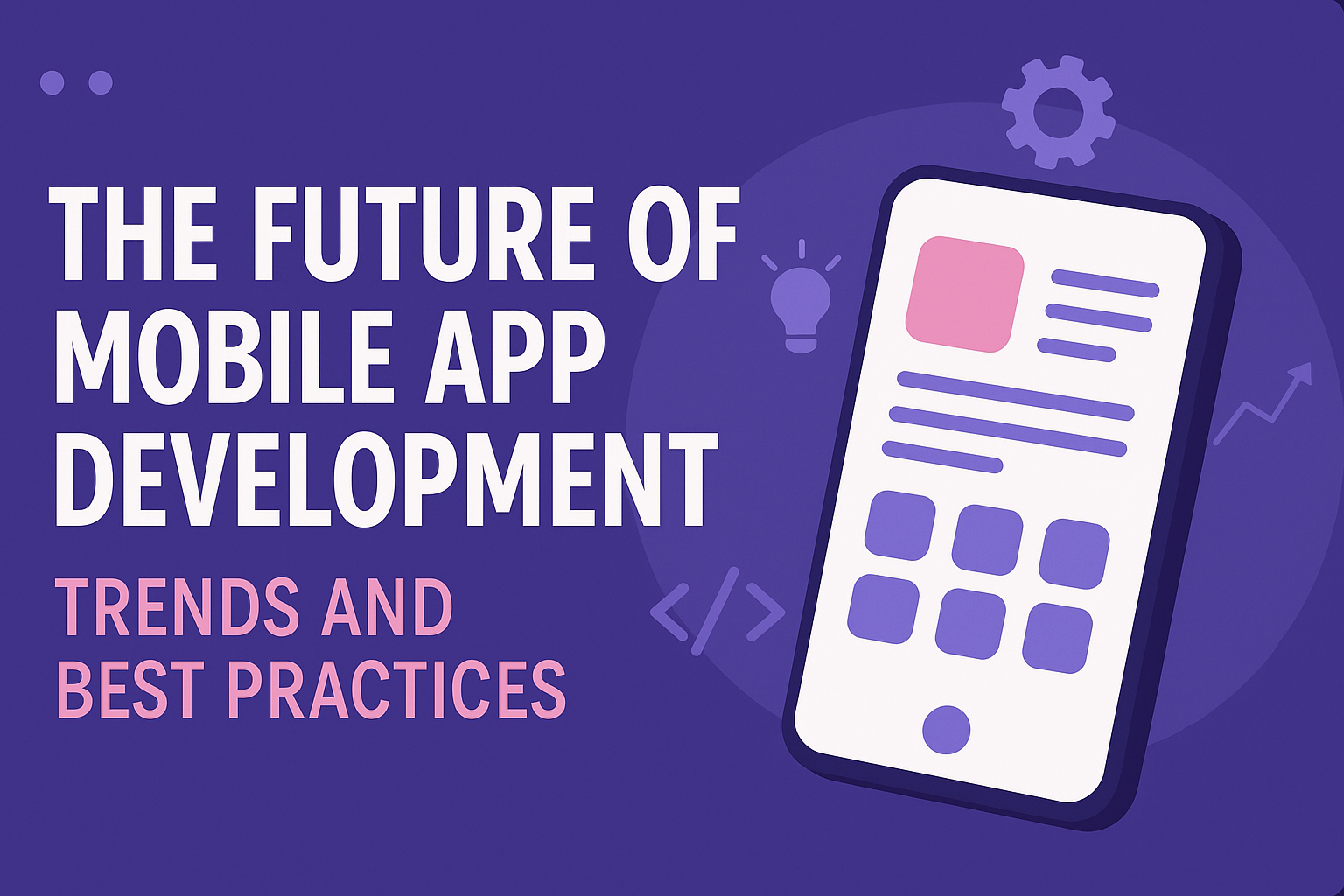Bridging the Divide: Why Choose a Reliable Mobile App Development Company for Cross-Platform Solutions

Strong 8k brings an ultra-HD IPTV experience to your living room and your pocket.
In today's mobile-first world, a strong app presence is no longer a luxury but a fundamental necessity for businesses aiming to connect with their audience. However, the decision between developing separate native applications for iOS and Android or opting for a single cross-platform solution can be a complex one. As of mid-2025, with billions of smartphone users globally, reaching both major operating systems is crucial. This is where cross-platform mobile app development shines, and choosing a reliable company to execute it becomes paramount.
✍️ Security is one of the biggest concerns in today’s apps. Discover how secure app development practices protect user data while ensuring compliance with privacy regulations.
The Great Divide: Native vs. Cross-Platform
Traditionally, mobile app development meant building two separate applications: one using Swift/Objective-C for iOS and another using Kotlin/Java for Android. This native approach offers unparalleled performance, direct access to device features, and the most refined user experience tailored to each OS.
However, native development comes with significant drawbacks:
Higher Costs: You're essentially building two apps, requiring separate development teams, increased development time, and thus, higher expenses.
Longer Development Cycles: Doubling the effort naturally extends the time it takes to launch your app.
Complex Maintenance: Updates and bug fixes need to be implemented and tested twice, leading to more overhead.
Resource Intensive: You need specialized developers for each platform, which can be challenging to find and retain.
This is where cross-platform development emerges as a compelling alternative, aiming to bridge the divide between iOS and Android.
Why Cross-Platform is a Game-Changer in 2025
Cross-platform development allows developers to write a single codebase that can be deployed across multiple operating systems, primarily iOS and Android. Modern frameworks have significantly matured, offering performance and user experiences that increasingly rival native apps. Here's why it's gaining immense popularity:
1.Cost Efficiency: This is arguably the biggest draw. By maintaining a single codebase, you reduce development costs by an estimated 30-50% compared to building two native apps. Fewer developers, less code to write, and streamlined project management translate directly into significant savings.
2.Faster Time-to-Market: The write once, run anywhere philosophy means you can launch your app on both iOS and Android simultaneously or with a minimal delay. This rapid deployment allows businesses to capitalize on market opportunities more quickly and gain an early competitive advantage.
3.Wider Audience Reach: You no longer have to choose which half of the smartphone market to target first. A cross-platform app instantly makes your product accessible to billions of iOS and Android users, maximizing your potential user base from day one.
4.Code Reusability and Simplified Maintenance: With a single codebase, developers can reuse a significant portion of the code across platforms. This drastically simplifies maintenance, updates, and bug fixes, as changes made to one codebase are reflected on both platforms, reducing effort and potential inconsistencies.
5.Consistent User Experience (UX): While native apps aim for OS-specific nuances, cross-platform frameworks enable a highly consistent look and feel across both iOS and Android. This uniformity can enhance brand identity and user familiarity, leading to improved user satisfaction and loyalty.
6.Easier Cloud Integration: Modern cross-platform tools are often designed with cloud integration in mind, making it simpler to connect your app with various cloud services for data storage, analytics, and backend functionalities.
7.Rapid Prototyping and MVP Development: Cross-platform frameworks are excellent for quickly building Minimum Viable Products (MVPs) or prototypes. This allows businesses to test app ideas, gather early user feedback, and iterate rapidly without investing heavily in separate native development.
8.Access to Native Features (with caveats): Modern cross-platform frameworks like Flutter and React Native offer robust bridges to native APIs and modules, allowing developers to access device-specific features like cameras, GPS, push notifications, and biometric authentication. While some highly specialized features might still require native code, the gap is rapidly closing.
The Role of a Reliable Mobile App Development Company
While the benefits of cross-platform development are clear, successful execution demands expertise. This is where partnering with a reliable mobile app development company specializing in cross-platform solutions becomes crucial. They bring:
Framework Expertise: Deep knowledge and experience with leading cross-platform frameworks like:
Flutter (Google): Known for its stunning UI, excellent performance (natively compiled), and a single codebase for mobile, web, and desktop. Ideal for visually rich apps and rapid development.
React Native (Meta/Facebook): Leverages JavaScript, making it popular among web developers. Offers a native-like experience by rendering actual native UI components. Great for quick iterations and large communities.
NET MAUI (Microsoft): The evolution of Xamarin, using C and .NET for enterprise-grade apps with strong Microsoft support.
Kotlin Multiplatform Mobile (KMM): Allows sharing business logic across platforms while retaining native UI, offering a highly flexible approach for specific use cases.
Ionic: A web-tech based (HTML, CSS, JavaScript) framework, great for Progressive Web Apps (PWAs) and simpler mobile applications.
UI/UX Design Prowess: While cross-platform offers consistency, a good company understands the subtle design guidelines and user expectations of both iOS (Human Interface Guidelines) and Android (Material Design). They ensure your app feels native enough on each platform while maintaining a unified brand identity.
Performance Optimization Skills: Cross-platform apps can sometimes face performance challenges, especially with complex animations or heavy computations. A reliable company employs best practices to optimize code, manage resources, and ensure smooth, responsive performance across various devices.
Integration Expertise: Seamless integration with backend systems, third-party APIs (payment gateways, social media, analytics), and cloud services is critical. An experienced team handles these complexities efficiently.
Rigorous Quality Assurance (QA): Thorough testing across a diverse range of devices, operating systems, and network conditions is essential to catch bugs and ensure a flawless user experience. This includes functional, usability, performance, and security testing.
Post-Launch Support and Maintenance: The app's journey doesn't end at launch. A reliable partner provides ongoing support, bug fixes, performance monitoring, and updates to keep your app relevant and secure in the long term.
Strategic Consultation: They don't just code; they advise. They help you choose the right framework for your specific needs, anticipate challenges, and align the app development with your overall business strategy.
Trends Shaping Cross-Platform Mobile App Development in 2025
The cross-platform landscape is continuously evolving. Here are some key trends influencing the field in 2025:
AI and Machine Learning Integration: Cross-platform apps are increasingly incorporating AI/ML for personalization, intelligent chatbots, predictive analytics, and enhanced user experiences. Frameworks are evolving to make AI integration more seamless.
Further Native Feature Access: Frameworks are constantly improving their ability to access more native device functionalities directly, reducing the need for platform-specific custom code.
Low-Code/No-Code Platform Integration: For simpler applications or rapid prototyping, cross-platform developers are leveraging low-code/no-code tools to accelerate certain aspects of development, making app creation more accessible.
Optimization for Foldable and Large Screens: With the rise of foldable phones and tablets, cross-platform apps are designed to adapt fluidly to various screen sizes and orientations, providing a consistent experience across diverse form factors.
Enhanced Security Protocols: As cyber threats evolve, cross-platform frameworks and development practices are emphasizing robust security features, secure data handling, and compliance with global privacy regulations (like GDPR and India's DPDP Act, effective mid-2025).
WebAssembly (Wasm) Integration: While still maturing for mobile, WebAssembly offers the potential for near-native performance for web-based cross-platform apps, enabling more complex functionalities directly in the browser.
Component-Based Architecture: A strong focus on modular, reusable components for faster development and easier maintenance, a principle strongly supported by frameworks like Flutter's widget system and React Native's components.
Conclusion
In the battle for mobile mindshare, covering both iOS and Android is non-negotiable. Cross-platform mobile app development offers a powerful, cost-effective, and efficient pathway to achieve this broad reach. However, its success hinges on the expertise and reliability of your chosen development partner.
By carefully selecting a company with a proven track record, deep framework knowledge, strong UI/UX sensibilities, and a commitment to quality and long-term support, you can confidently bridge the divide between platforms. This strategic partnership will empower your business to deliver a high-quality, consistent, and engaging mobile experience to a global audience, driving engagement, growth, and sustained success in the competitive digital landscape of 2025 and beyond.
Note: IndiBlogHub features both user-submitted and editorial content. We do not verify third-party contributions. Read our Disclaimer and Privacy Policyfor details.







